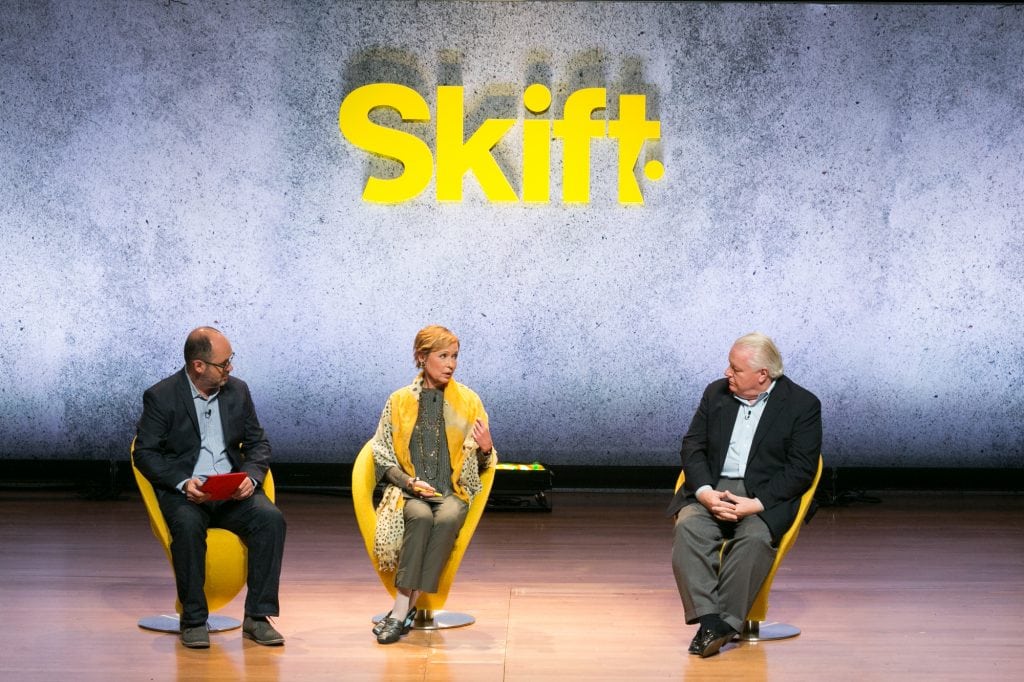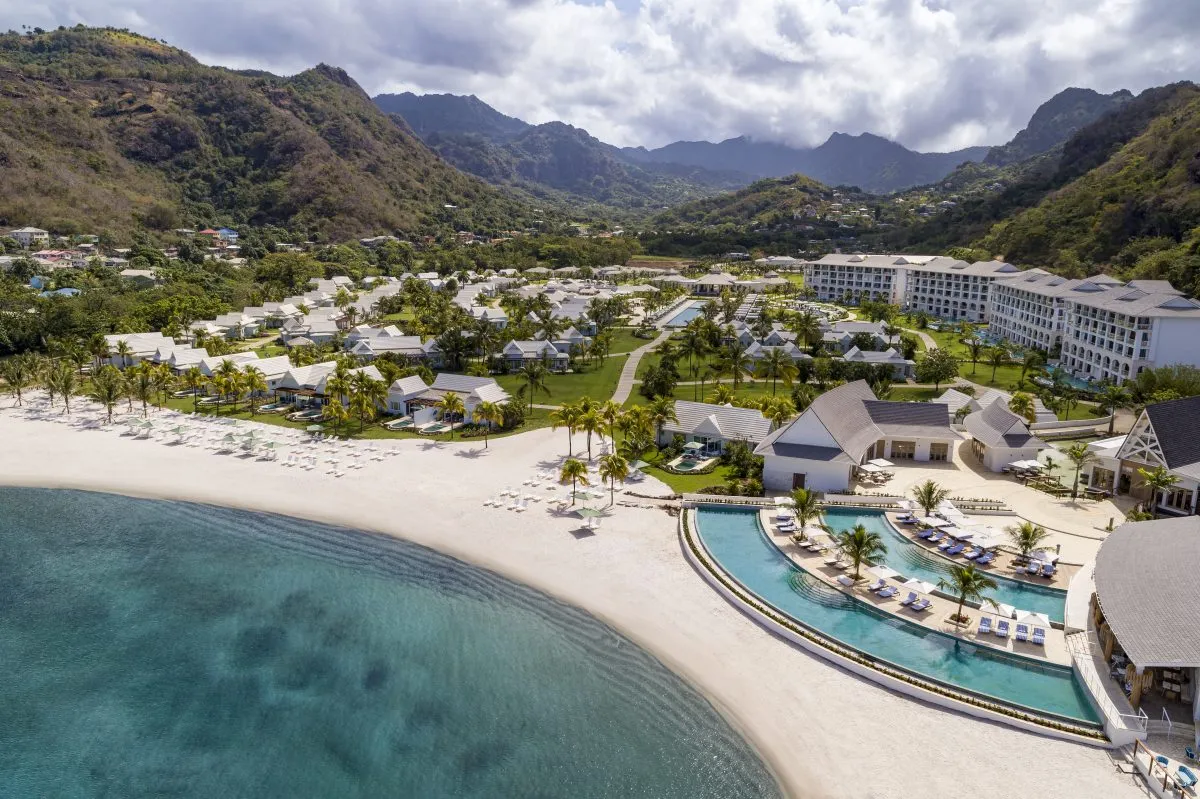U.S. Travel Association: 'We're Working With Both Clinton and Trump'

Skift Take
Millions of Americans and many others around the world watched the first 2016 U.S. presidential debate this week between former Secretary of State Hillary Clinton and hotel and business mogul Donald Trump.
Regardless of who America votes into the White House on November 8, the U.S. Travel Association is prepared and has already been working with both candidates.
According to Roger Dow, CEO of the U.S. Travel Association, the Washington, D.C.-based national umbrella organization representing all segments of travel in America, isn't taking sides in the U.S. presidential race and feels he and his team are further along with educating both candidates about the travel industry than they were with President Obama before he took office in 2009.
"The bottom line is, we're working with both of them, the Trump team and Hillary's team," said Dow, speaking during the Skift Global Forum in New York City on Tuesday. "We got together with Hillary when she was Secretary of State and she understands that visitation from outside the United States is our stealth public diplomacy."
Trump, despite his repeated attacks against many ethnic groups and nationalities over the past year and a half and his likely impact on some international travelers' decisions to visit the U.S., understands the travel industry, Dow said. "Donald has hotels," said Dow. "Looking at him, he understands what happens to a market, a big city market, due to international travel."
Dow feels confident both candidates understand why the travel industry matters. "But we're covering our bets and working both sides because we need the next administration to come in and push further beyond the good stuff that this administration has done," said Dow.
Moving Forward After Obama
President Obama needed help understanding the importance of the travel industry when he was elected. "We did have a learning process with President Obama," said Dow. "If you recall he did say that you can't go to Las Vegas for the Super Bowl on the taxpayer's dime."
President Obama was also the first sitting U.S. president to meet with U.S. Travel right after taking office. "I watched the learning of this administration that's done phenomenal things to bring down visa wait times, create Brand USA, add more visa waiver countries and create TSA PreCheck. All of those things."
The travel industry has grown 19 percent faster than any other industry post-Recession and travel wages have grown 10 percent faster than other industries, Dow said. "I used to say that we're the Rodney Dangerfield of industries -- we got no respect," said Dow. "But now we've been pounding away at the jobs and one of nine Americans get their jobs in our industry. We're getting people to understand that [the travel industry] is the front door to economic development."
Visit Philadelphia's Work With Politicians
At the city level, Visit Philadelphia, like any city destination marketing organization, realizes its role is stymied without support of local politicians. "At this point we're really invited to be at the table because people have learned over the years that they can't make it on just the resident population," said Meryl Levitz, CEO of Visit Philadelphia, who also spoke during Skift Global Forum on Tuesday. "Without [tourists visiting our cities, politicians] are not going to succeed."
The LGBT and African American visitor markets are particularly strong "power bases" for Philadelphia, said Levitz. "It's important for [city mayors] who respect power to understand that hospitality and tourism is a power base that is made up of many power bases. I feel that when I meet with a mayor or a governor, really important stakeholders, they believe that our tourism campaigns should be funded."
Levitz said, given the general nature of politics, her organization has diversified its funding sources and hasn't relied solely on hotel taxes. "In our 20 years our hotel tax has generated about $104 million," said Levitz. "We've raised an additional $104 million so that we also have grounding in the foundation community, the corporate community, the university community and the bases that I mentioned. And we transcend administrations. Our chairman says that actually it's the mayors and governors who are tourists because they're just there for four or eight years and we're there all the time."




